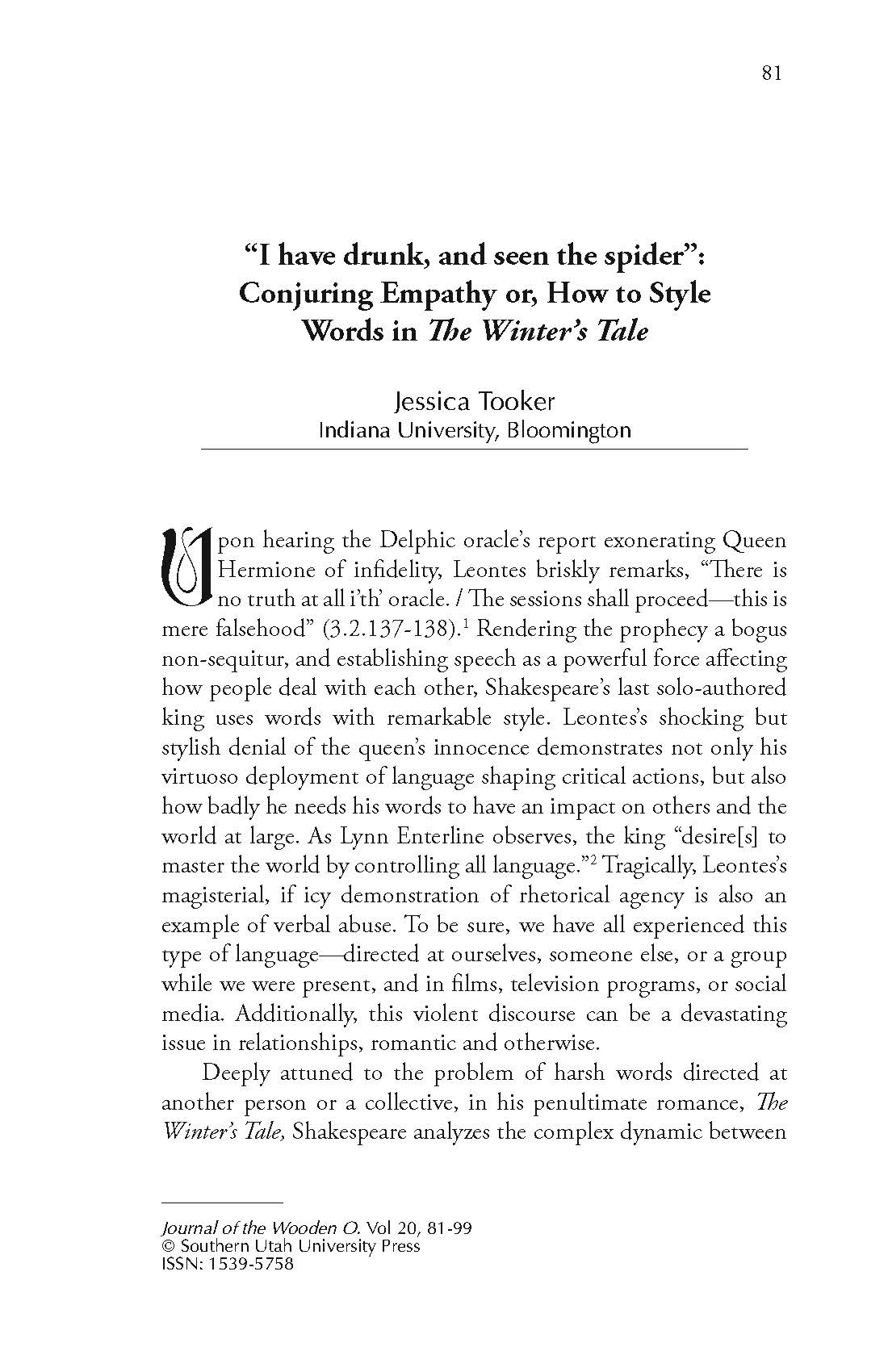"I have drunk, and seen the spider": Conjuring Empathy or, How to Style Words in The Winter's Tale
Main Article Content
Abstract
Upon hearing the Delphic oracle’s report exonerating Queen Hermione of infidelity, Leontes briskly remarks, “There is no truth at all i’th’ oracle. / The sessions shall proceed—this is mere falsehood” (3.2.137-138).1 Rendering the prophecy a bogus non-sequitur, and establishing speech as a powerful force affecting how people deal with each other, Shakespeare’s last solo-authored king uses words with remarkable style. Leontes’s shocking but stylish denial of the queen’s innocence demonstrates not only his virtuoso deployment of language shaping critical actions, but also how badly he needs his words to have an impact on others and the world at large. As Lynn Enterline observes, the king “desire[s] to master the world by controlling all language.”2 Tragically, Leontes’s magisterial, if icy demonstration of rhetorical agency is also an example of verbal abuse. To be sure, we have all experienced this type of language—directed at ourselves, someone else, or a group while we were present, and in films, television programs, or social media. Additionally, this violent discourse can be a devastating issue in relationships, romantic and otherwise.
